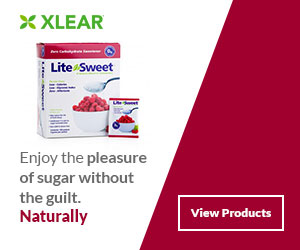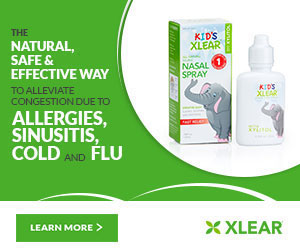THE BEGINNER’S GUIDE TO


INTRODUCTION
THE MOST EXTENSIVE AND COMPREHENSIVE INTRODUCTION TO XYLITOL
THAT YOU’LL FIND ANYWHERE

WHY WE WROTE THIS GUIDE
Sugar alternatives have grown in popularity in recent years. Not only have they grown in popularity, but people have become wary of the different sweetener options for their health. Are these alternatives any better than sugar? Are they worse? We want to clear a few things up about one in particular: xylitol.
That’s why we wrote this guide – to give you a full comprehensive understanding about xylitol. Sure you can search through web results but that only helps if you know what you’re searching for. We wanted to be able to give you a one-shop stop, if you will, to everything you want to know about xylitol. And even some things you didn’t even know you wanted to know.
WHO THIS GUIDE IS FOR
![]()
Our complete comprehensive xylitol guide is for everyone. Xylitol isn’t just for diabetics or those looking to life a sugar free lifestyle. Xylitol comes with a large list of health benefits, everything from potential weight loss, oral health, sinus health, and more. Everyone can reap the benefits of xylitol in some way or another and we want to educate readers so they can live the healthiest life possible.
HOW MUCH OF THIS GUIDE SHOULD YOU READ
![]()
This guide is designed for you to read cover-to-cover. Each of our chapters will educate you on a new area of xylitol. We want you to leave with a comprehensive understanding of all sides of xylitol, the benefits, the side effects, and everywhere it can, and is, being used, some of which may surprise you. If you want a full understanding of xylitol, read it cover-to-cover, if you are just interested in understanding one section, then is available to you as well.
CHAPTER 1
WHAT IS XYLITOL
![]()
Xylitol is a white crystalline substance that looks and tastes like sugar. It’s an all-natural sugar alcohol that is found in many fruits and vegetables and produced in small amounts by the human body. It has been researched for over 40 years and has resulted in thousands of studies confirming its effectiveness and safety.
Xylitol is most commonly derived from cornhusks and birch wood. Xylitol is most commonly used as a sweetener, often as an alternative to sugar. While it gained popularity as a sweetener, it has many other health benefits. It’s often found in chewing gum, mints, candies, diabetic friendly foods, oral care products, and even sinus care products.
TAKE ME TO CHAPTER ONE >
CHAPTER 2
XYLITOL AS A SWEETENER
![]()
Xylitol is a popular sweetener among diabetics and can be found in many recipes. While it looks and tastes similar to sugar, it contains 40% fewer calories, making it a popular product for anyone looking to control their sugar or caloric intake.
TAKE ME TO CHAPTER TWO >
CHAPTER 3
XYLITOL IN ORAL CARE
![]()
While xylitol is a sweetener, it’s incredibly beneficial to oral care. Where increased sugar intake can reek damage to a person’s oral health, increased xylitol consumption can actually help reduce cavity causing bacteria and tooth decay.
Not only does xylitol help reduce bacteria, it can help increase the absorption of calcium in the digestive system which is good for your teeth, but it also aids in the production of saliva which helps prevent dry mouth, and it also helps reduce the acidity of saliva, keeping the mouth at it’s natural pH level.
TAKE ME TO CHAPTER THREE >
CHAPTER 4
XYLITOL IN SINUS CARE
![]()
Saline nasal sprays are some of the most popular options for sinus care. But the addition of xylitol adds another layer of power to a saline alone nasal spray. Xylitol based nasal sprays, neti pots, and pressure rinses can be used to help alleviate cold and flu symptoms or allergy symptoms, making them perfect for any time of the year.
TAKE ME TO CHAPTER FOUR >
CHAPTER 5
XYLITOL AND EAR INFECTIONS
![]()
A lot of people don’t think about the mouth and nose being connected to the ears, but they are. So it’s no wonder that taking care of the mouth and nose can help you take care of your ear canals. Many of the bacteria that cause ear infections actually start in the mouth. Using different xylitol products can help children and adults that suffer from ear infections.
TAKE ME TO CHAPTER FIVE >
CHAPTER 6
DANGERS OF XYLITOL
![]()
The beauty of xylitol is that there are very few downfalls or side effects. But that’s not to say there are none. Xylitol is toxic to dogs, and can be fatal. This is the biggest concern to individuals who consume xylitol, making sure their pets do not get into their products. As for human consumption, xylitol can create digestive discomfort for some individuals.









